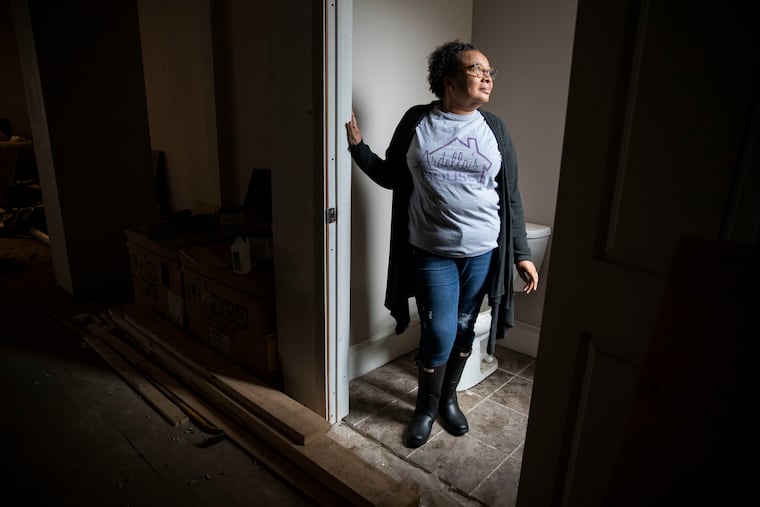During Black Lives Matter protests, donations poured in to a Philly community fund. Here’s how the nonprofit distributed the money.
During the uprisings connected to the Black Lives Matter movement, half a million dollars flooded in to a Philadelphia community fund. The question was: What to do with it?

As protests for racial justice seethed through Philadelphia this summer, hundreds of people and businesses across the city simultaneously recognized that backing the movement required more than a window sign or an Instagram post. It also meant giving real, substantive, meaningful support — aka large sums of money.
So, in just a few months, Philadelphia’s Bread & Roses Community Fund, a grant-making organization with a social-justice mission, received as much in donations — more than half a million dollars — as it would normally get for the whole year.
The question was: How to distribute it?
To distribute that windfall in the spirit it was given — as an immediate commitment to anti-racism and solidarity — the nonprofit threw out its normal grant-making process. It didn’t ask for applications or review proposals.
Instead, it just gave $10,000 apiece to every Black-led or Black-centered organization in its network. The 50 recipients, announced Tuesday evening, included bail funds and youth programs, prisoners' groups and urban gardeners, re-entry organizations and arts initiatives.
“We felt a lot of urgency around moving that money out and getting it into the hands of the movement,” said Casey Cook, the organization’s executive director.
Bread & Roses has always supported racial justice, Cook said. Its very first round of grant recipients back in 1977 included the Black Panthers. But this fast-moving effort, called the Black Liberation Now Found, was unprecedented in the organization’s history.
The influx arrived at a critical moment for Tonie Willis, whose nonprofit Ardella’s House spent the past six months scrambling to help women released from prison during the pandemic with no place to go — putting them up in Airbnbs, getting them cell phones, buying basics like toiletries and SEPTA Keys, holding group support sessions via Zoom.
“For a man, he can usually look up whoever he might have been dating, or the mother of his children, and say, ‘Can I come sleep on your couch?’” Willis said. Many women don’t have that option. “And a lot of them have to be mothers from day one.”
Willis has just embarked on renovating a property in North Philadelphia that will nearly double her nonprofit’s housing capacity. “So," she said, “it was a blessing to be able to receive that funding and it’s an honor to know that they believe in our work.”
Another $10,000 went to Amistad Law Project, which has been advocating for Gov. Tom Wolf to grant reprieves to let medically vulnerable people out of prison during the pandemic.
Kris Henderson, the organization’s executive director, said that, though only 118 were released, the effort had by some measures succeeded. “It’s the broadest use of the reprieve power we’ve seen in recent years.”
And $10,000 more went to ACT-UP, a volunteer-run grassroots movement on HIV/AIDS policy — which, organizer Jose De Marco said, has become a racial-justice issue. Black people comprise 13% of the U.S. population, but accounted for 42% of new HIV infections as of 2018, according to the Centers for Disease Control.
“The rest of America gets a cold, and Black people get pneumonia,” De Marco said. That so many Black people are being infected, even though preventative treatments are available, speaks to structural racism, he said: “The same reasons people are incarcerated in Black and brown communities are the reasons people are getting HIV.”
They’ll use the grant money to continue demanding change, whether that means bussing members to demonstrations or paying fines for protest-related arrests.
The grants are just part of the flood of $1.8 million that’s passed through Bread & Roses this year, forcing the organization to get creative as it rushed to push that money back out the door. It also put $600,000 into a rapid-response Solidarity Fund for COVID-19 Organizing, to back groups advocating for hazard pay, workplace safety and personal protective equipment.
“Community organizing is what creates sustainable change,” Cook said. “Our goal is creating a just society and movements are going to get us there. Those movements need money to make it happen.”